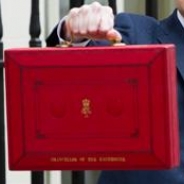
Autumn Statement – Has the Pain Been Fairly Distributed?
Robin Williamson, Technical Director of the Low Incomes Tax Reform Group, responds to the Chancellor's Autumn Statement.
 As the Age of Austerity is now predicted to last longer than originally forecast, the Chancellor in last week’s Autumn statement attempted a balancing act between taxing the wealthy and cutting welfare. Lively debate has ensued about whether the pain was fairly distributed.
As the Age of Austerity is now predicted to last longer than originally forecast, the Chancellor in last week’s Autumn statement attempted a balancing act between taxing the wealthy and cutting welfare. Lively debate has ensued about whether the pain was fairly distributed.
The legality and ethics of tax avoidance by wealthy individuals and multi-national corporations have taken up much space on airwaves and in newsprint. But what of the lower income groups, and the so-called squeezed middle?
Next year (2013/14) most welfare benefits and tax credits will rise by just 1%, with some (including child benefit and some elements of working tax credit) remaining fixed at last year’s levels. Only those benefits and credits payable to disabled claimants will rise with the Consumer Prices Index (CPI).
Fair, perhaps, to those in work who are seeing similarly modest (if any) pay rises; but the freezing of child benefit, and the low child tax credit increases, will do little to tackle child poverty. And holding back WTC will do even less to make work pay.
The increase in the personal allowance to £9,440, within a whisker of the Government’s target of £10,000, is good news for most basic rate taxpayers. But welfare claimants could gain as little as 15% from the rise, once the corresponding reduction in their means tested benefits – which are based on net, after-tax, income – is taken into account. And the squeezed middle will be squeezed yet further as they reach the higher rate tax bracket at a point £1,025 lower than this year’s threshold.
Fairness should extend not just to the numbers, but also to the manner in which tax is collected. While it is vital that everyone, rich or poor, pays what tax they owe, there must be some equity in the manner of its recovery. Tax credit overpayments arise not just from claimant – or even official – error and delay. They are an integral part of a system under which payments are made on a provisional basis, with entitlement being fixed at the end of the year when consequential adjustments are made to the award – up or down. These debts are untypical, yet HMRC propose to contract out their recovery to commercial debt collectors. HMRC must take great care to impose the same standards and safeguards on their agents as they would observe themselves.
Finally, there should be fairness in the way HMRC serve the unrepresented taxpayer population. Customer service by HMRC has been strongly criticised over the past few years, but it is slowly getting better. A substantial reinvestment will kick-start much needed improvements. Such reinvestment should be comparable with the amounts ploughed back into HMRC for the important task of combating avoidance and evasion. Indeed, spending more on ensuring the willing taxpayer population get all the help they need in complying with a complex system will surely pay dividends in reducing both inadvertent error and deliberate fraud.


Please register or log in to add comments.
There are not comments added